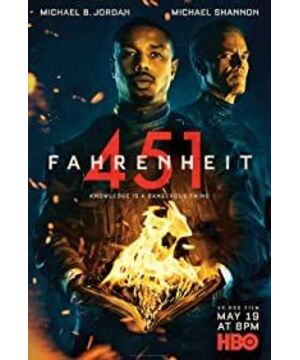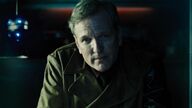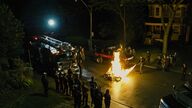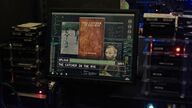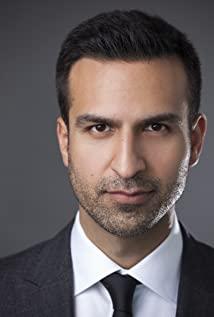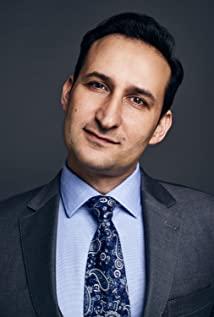Sorry, I haven't read the original. Mainly criticizing movies. Also, the following personal opinions are suspected of spoilers.
I think it is a good movie. Let's analyze the wave first. 1. Burning a book is only a metaphysical way of expression. The sensibility of moving the battlefield to the Internet or electronic devices like Kindle may be much weaker, and what is inside and outside the walls is not conducive to the development of the plot structure. What kind of books were burned? Has anyone seen any books related to the constitution or laws? Are there any books from all walks of life or related majors? Of course, I also noticed that at the scene of the self-immolation of a woman living alone in the forest, a copy of Sigmund Freud's "The Ego and the Id" was burned. So is it possible to clarify the scope of burning and exclude books that promote technological progress and maintain social order? Almost all that was burned was about human rights, nation, class, individual and humanities. So what they want to burn is not a civilization, but a culture. Many viewers do not understand this point, and they feel that it is not logically justified. However, the social phenomenon of civilization advancement and cultural regression is very likely to occur in any country. So from this perspective, two groups of people with different philosophies are in a social environment where they are fighting in the same room. It cannot be said that it is a dystopian setting. In the Omnis communication organization in the second half of the movie, the female head also said this: The unlinked human brain is the last bastion against the technological world.
2. How many literary works has the captain himself memorized? When searching in the house of a woman who lives alone in the forest, he can just pick up a book and talk about it. In the comments, a few sentences are his own opinions, and some are historical summaries. The protagonist, Xiao Hei, listens utterly intoxicated, without any idea. The line that the captain resonated most with me: "(Experts) stick to their own opinions, but people are getting more and more confused and feel more cruel and lonely than before." It is really a good criticism of society. So in the character setting of the captain, you can see that he is completely different from Xiao Hei. In his bones, he is a thoroughly anti-literary and counter-cultural fighter, an extreme paranoia who can use a lighter to bake his palms. What's interesting is that he will write small notes and measure his various behaviors through the words he disdains. Even if he hints at the results he doesn't want to expect, he will still burn the flames. His critical spirit of things was also directly instilled in Xiao Hei and asked him to read a book. He hopes to see Xiao Hei that he has cultivated follow his values and inherit his position in the future.
3. At first, Xiaohei didn't have the hysterical mentality of the captain after reading the book. At first, he didn't know why he was going to burn, he only knew that he had to do it. His heart was extremely simple, and his feelings about words were also intuitive. Yes, I just read what I see, maybe I don’t understand it. When I was talking to the organization, I remembered another sentence: I felt like I was sitting on the beach, and the words passed through my body. Therefore, the portrayal of his inner transformation is also simple, either childhood memories, love with the heroine, and reading. It is precisely because of this that I gradually awakened the side feelings of my behavior and felt the profound significance of literary works.
So what is so good about this movie, let me summarize my personal views.
Reading can make more friends. emmm.... I really don't want to talk about politics, religion, or a certain country, etc. This will only make bbs endless. So just take the lines of the characters in the film, the captain thinks that the book will disturb the mind and make people unpleasant, and the female head storyteller can remind people of how stupid they are. Xiao Hei's final sacrifice of life explained everything.
View more about Fahrenheit 451 reviews


